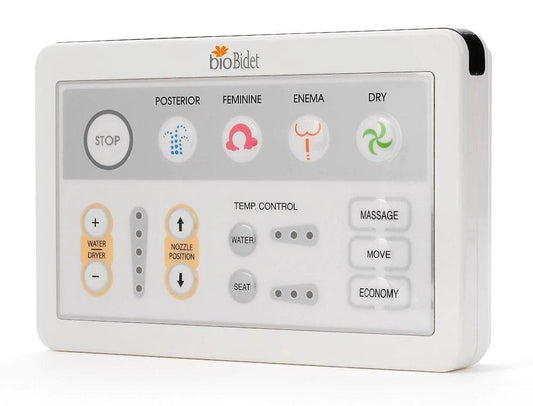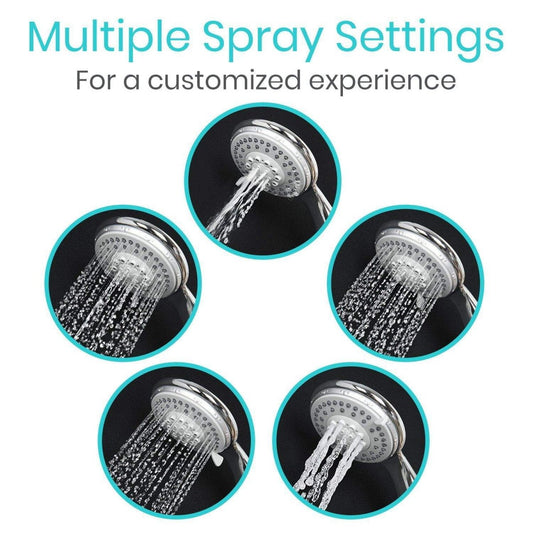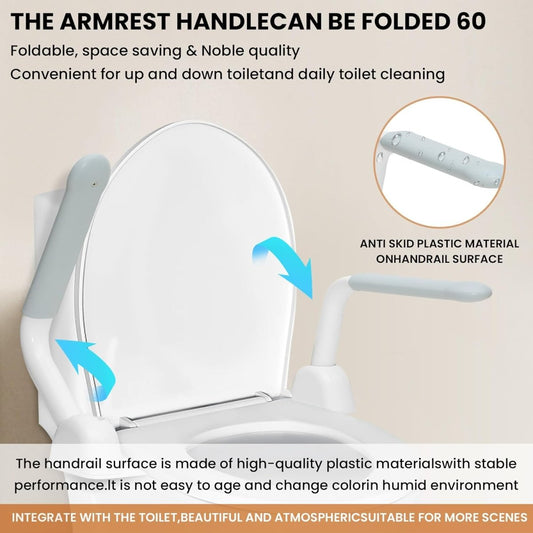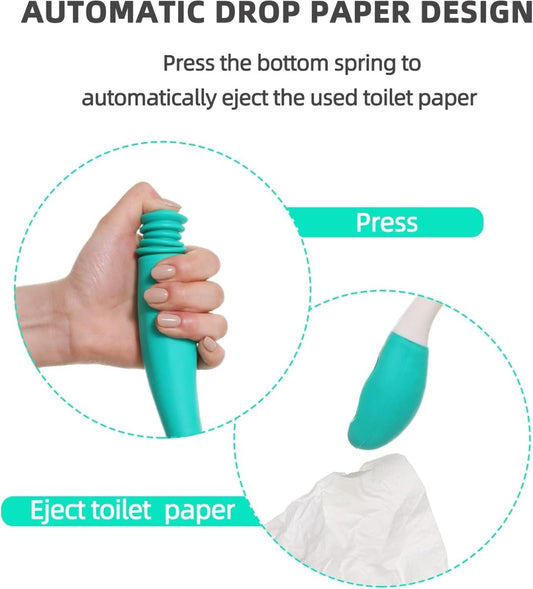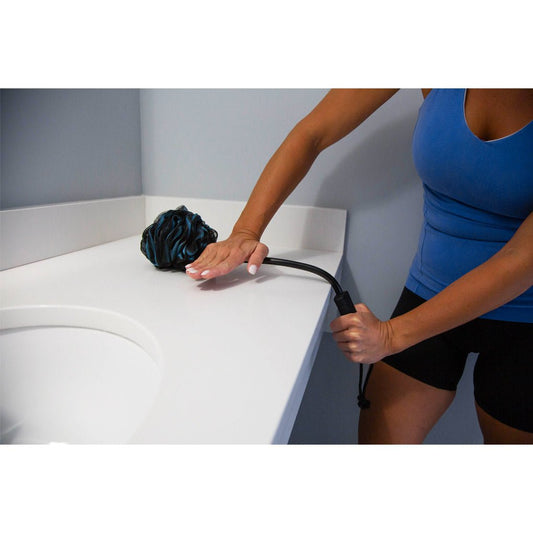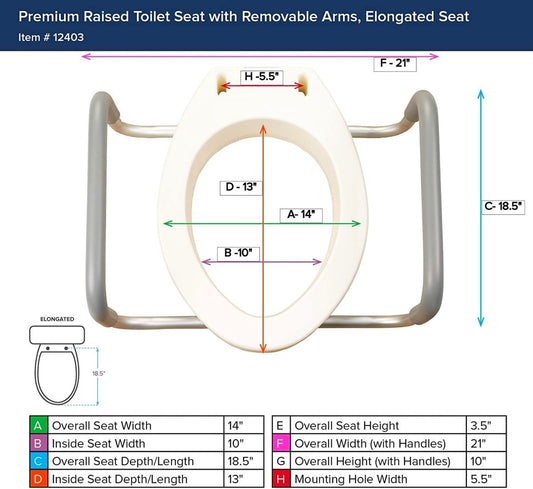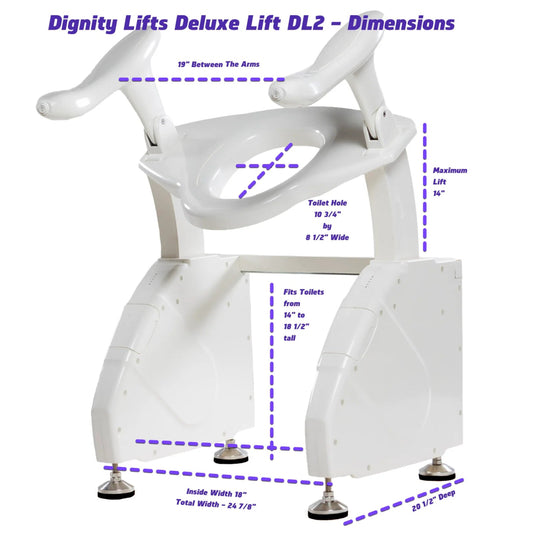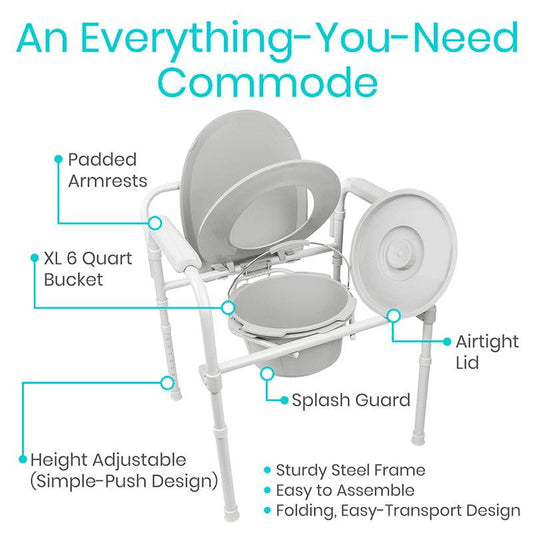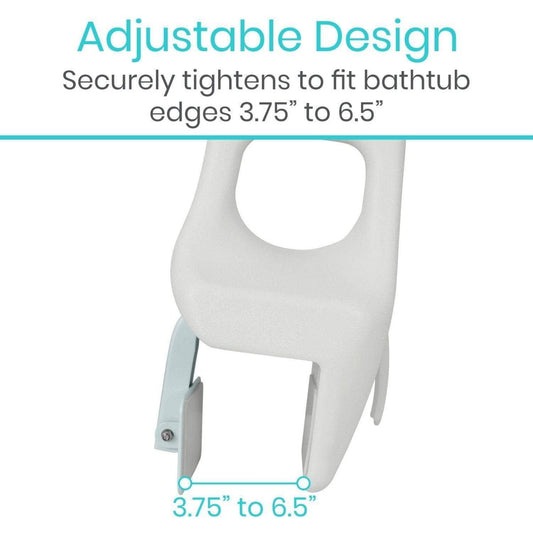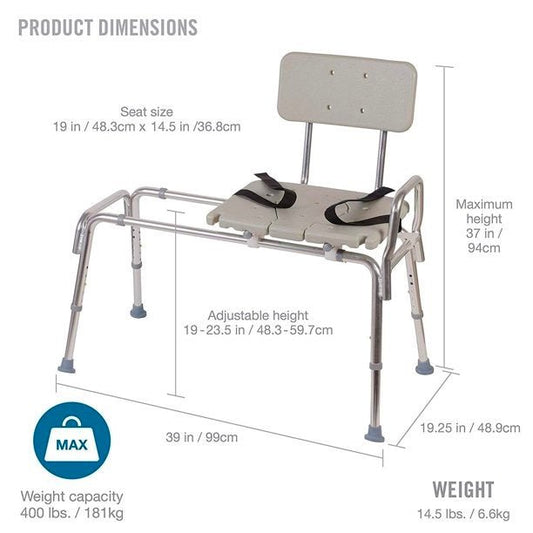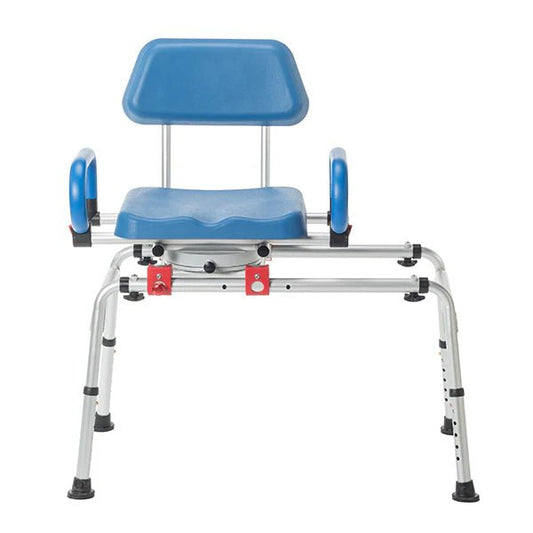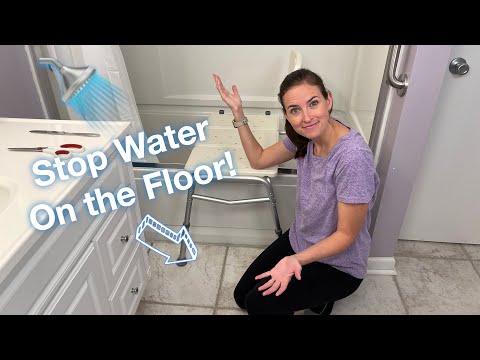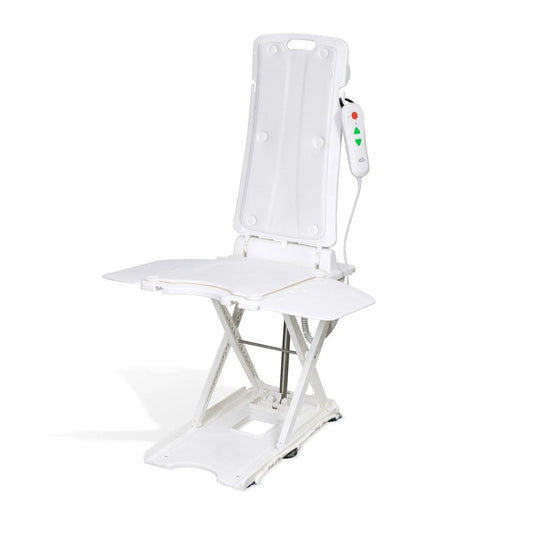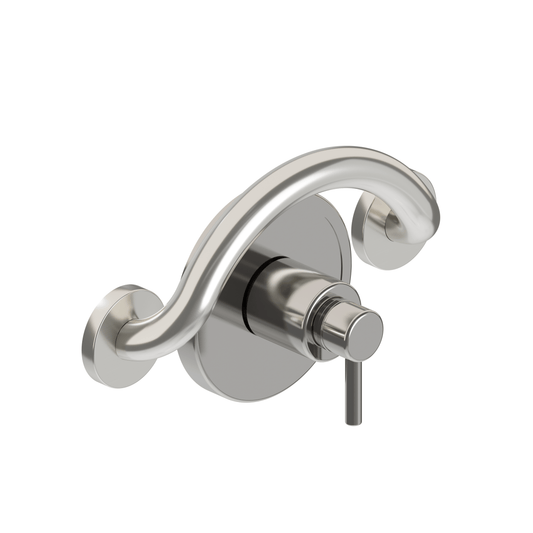-
Bio Bidet 1000 Supreme Toilet Seat
Regular price $499.99Regular priceUnit price per$442.00Sale price $499.99 -
Handheld Shower Head
Regular price $33.99Regular priceUnit price per -
Toilet Safety Rails | Get up from the toilet easier
Regular price $128.00Regular priceUnit price per -
Raised Toilet Seat With Bidet & Handles
Regular price $249.99Regular priceUnit price per -
Bladder Support Device
Regular price $479.94Regular priceUnit price per -
Washable Underwear For Moderate Incontinence For Women (3pk)
Regular price $79.95Regular priceUnit price per -
Long Reach Comfort Wipe
Regular price $12.99Regular priceUnit price per -
Bendable Handle Loofah
Regular price $20.00Regular priceUnit price per$25.99Sale price $20.00Sale -
Bendable Handle Scrub Sponge
Regular price $14.00Regular priceUnit price per$25.99Sale price $14.00Sale -
Shower/Tub Treads | Non Slip Strips
Regular price $8.99Regular priceUnit price per -
Bolted Toilet Seat Riser with Arms - Elongated
Regular price $71.99Regular priceUnit price per -
Dignity Lift
Regular price $1,699.00Regular priceUnit price per -
Bariatric Drop Arm Bedside Commode
Regular price $100.00Regular priceUnit price per -
Drop Arm Bedside Commode
Regular price $99.00Regular priceUnit price per -
Bedside Commode | Bedside Toilet
Regular price $69.99Regular priceUnit price per -
Assurance Bidet Attachment
Regular price $49.00Regular priceUnit price per -
Tub Rail Handle
Regular price $64.99Regular priceUnit price per -
Sliding Tub Transfer Bench w/ Seatbelt
Regular price $99.99Regular priceUnit price per -
Swivel & Sliding Transfer Bench w/ Arm Rests
Regular price $335.00Regular priceUnit price per -
Padded Tub Transfer Bench w/ Commode Opening
Regular price $142.00Regular priceUnit price per -
Automatic Bath Lift
Regular price $599.00Regular priceUnit price per -
Crescent Grab Bar
Regular price From $69.00Regular priceUnit price per -
135° Angled Grab Bar - Vinyl Coat
Regular price $109.99Regular priceUnit price per -
110° Angled Grab Bar
Regular price $47.00Regular priceUnit price per

Why You Need an OT!
An Occupational Therapist (OT) is your superhero! A skilled professional whose expertise can significantly enhance your quality of life by helping you maintain independence, manage chronic conditions, and ensure your home environment supports your needs.
When you're ready to dive into what occupational therapy is, why you might need it, and the myriad of ways an OT can be invaluable in your life click below!



